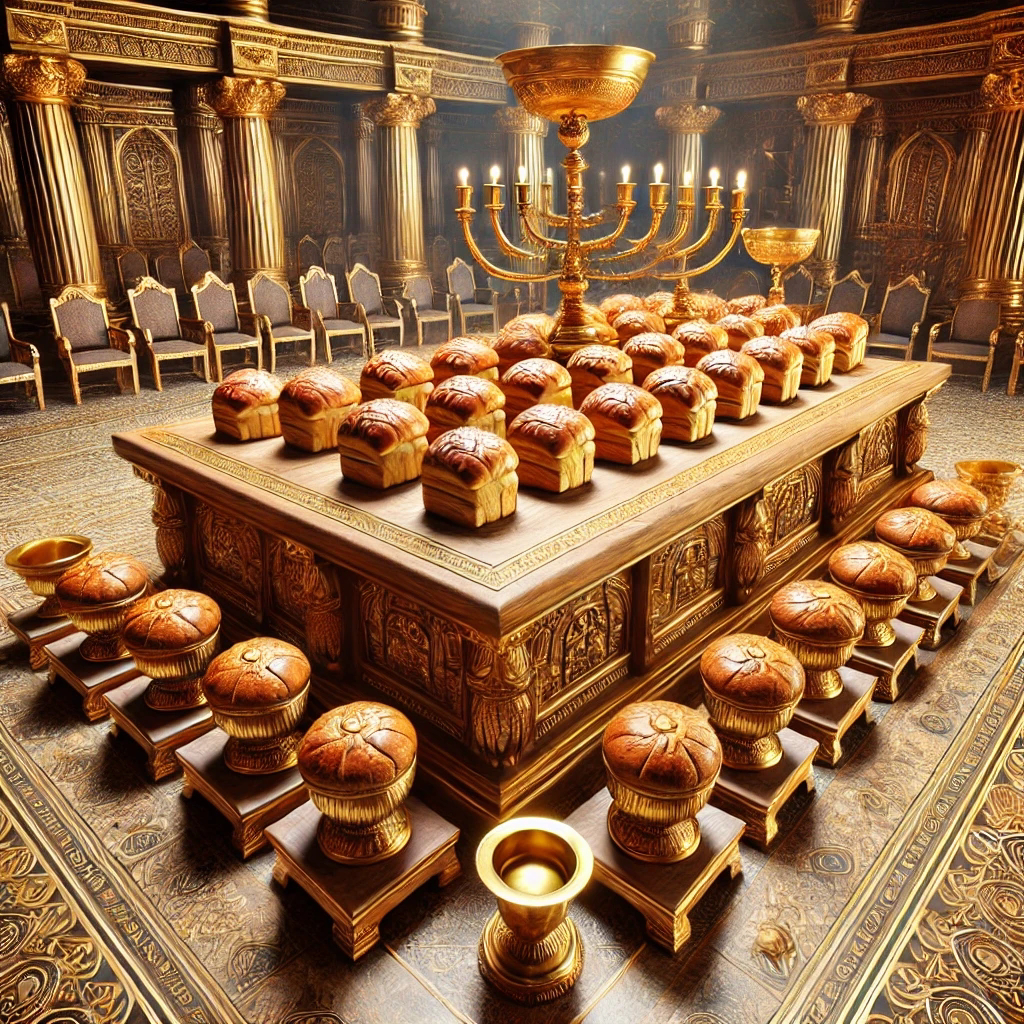The Tabernacle
The Tabernacle was the portable sanctuary that God commanded Moses to build as a dwelling place for His presence among the Israelites. It was constructed according to divine instructions given in Exodus 25–40 and served as the center of worship during Israel’s journey through the wilderness. Every part of the Tabernacle carried deep spiritual significance, pointing to Christ and God's redemptive plan.
1. The Layout of the Tabernacle
The Tabernacle was divided into three main sections:
- The Outer Court (Exodus 27:9-19)
- The Holy Place (Exodus 26:33)
- The Holy of Holies (Exodus 26:34)
These divisions represent different levels of intimacy with God, foreshadowing the access we now have through Jesus Christ (Hebrews 10:19-22).
2. The Objects and Their Meanings
A. The Outer Court
-
The Bronze Altar (Exodus 27:1-8)
- A large altar for animal sacrifices.
- Meaning: Represents Jesus’ sacrifice on the cross (Hebrews 9:22).
-
The Bronze Laver (Exodus 30:18-21)
- A basin for priests to wash before entering the Holy Place.
- Meaning: Symbolizes spiritual cleansing and sanctification (Ephesians 5:26).
B. The Holy Place
-
The Golden Lampstand (Menorah) (Exodus 25:31-40)
- A seven-branched lampstand providing light.
- Meaning: Represents Jesus as the Light of the World (John 8:12).
-
The Table of Showbread (Exodus 25:23-30)
- A table holding twelve loaves of bread.
- Meaning: Represents Jesus as the Bread of Life (John 6:35).
-
The Altar of Incense (Exodus 30:1-10)
- A small altar where incense was burned.
- Meaning: Symbolizes prayers ascending to God (Revelation 8:3-4).
C. The Holy of Holies
-
The Veil (Exodus 26:31-33)
- A thick curtain separating the Holy Place from the Holy of Holies.
- Meaning: Symbolizes the separation between God and man, which was torn at Christ’s death (Matthew 27:51).
-
The Ark of the Covenant (Exodus 25:10-22)
- A gold-covered chest containing the Ten Commandments, Aaron’s rod, and manna.
- Meaning: Represents God's presence and covenant with His people. Jesus is the fulfillment of the law and the new covenant (Hebrews 9:4, Matthew 26:28).
-
The Mercy Seat (Exodus 25:17-22)
- The golden lid of the Ark, with two cherubim.
- Meaning: Represents God's throne and the place of atonement through Christ’s blood (Romans 3:25).
3. The Full Tabernacle as a Picture of Christ
The Tabernacle foreshadowed Jesus Christ in every way. He is:
- The Sacrifice (Altar) for our sins.
- The Living Water (Laver) that cleanses us.
- The Light (Lampstand) that guides us.
- The Bread (Table of Showbread) that nourishes us.
- The Intercessor (Incense Altar) before God.
- The Mediator (Veil torn in two) giving us access to the Father.
- The Presence of God (Ark of the Covenant) among us.










Comments
Post a Comment